Race, racism and the conversation the Church needs to be having
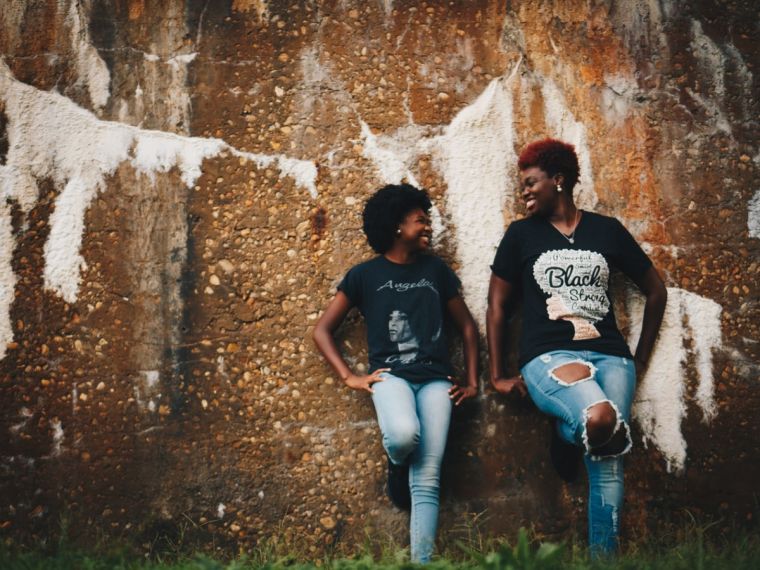
There might be racial diversity but is there real integration and inclusivity? That is much harder to measure and something that is not being as openly discussed in the Church as it should be, says Ben Lindsay, pastor and author of the new book from SPCK Publishing, We Need To Talk About Race.
Ben speaks to Christian Today about where the Church has improved when it comes to race and the conversation he believes still needs to happen to break the "glass ceiling".
CT: What are your own roots?
Ben: My grandparents came here from Jamaica in the 50s, bringing my parents with them. I was born in south-east London and grew up in the 80s and 90s when there was an undertone of racism despite the diversity of the area.
Stephen Lawrence, who was murdered in 1993, went to school not far from where I lived and died a mile away from my school; some of my friends knew him personally so it was a dangerous time for black people in London.
Personally, I had a fairly happy childhood but there was a backdrop of racism. There were racist comments and racially-motivated physical attacks. Three months before Stephen Lawrence was murdered, I was the victim of a racist attack myself.
The church my family and I went to at the time, a Baptist church in Woolwich, was white majority and while everybody was very friendly, loving and welcoming, when there were race issues - such as with the murder of Stephen Lawrence - I'm not quite sure if the church knew how to handle it.
When I was attacked, they of course felt very sorry and I received letters of support at the time, but it wasn't really equipped to make a stand against racism and everything that was going on. I'm not sure if, 25 years on, the Church - with a capital 'c' - is any better equipped to deal with that sort of racism.
CT: How do you think that backdrop of racism affects young black people psychologically? Does it affect your sense of belonging or self-esteem?
Ben: First of all, we need to define what racism is and isn't. If you look at racism as just name-calling then you can deal with it as: 'that person doesn't like me because of the colour of my skin' and 'I don't like you because of something about you.'
But if you look at racism as a structural and systemic issue - which actually is about power - then you see that for years, systems and institutions have benefitted from the majority culture exploiting the minority culture, and that is something much deeper and much more concerning.
This is disproportionately played out against people of colour and in all walks of life - in the educational system, the criminal justice system, the stop and search statistics, management positions, in the police and unfortunately in the Church.
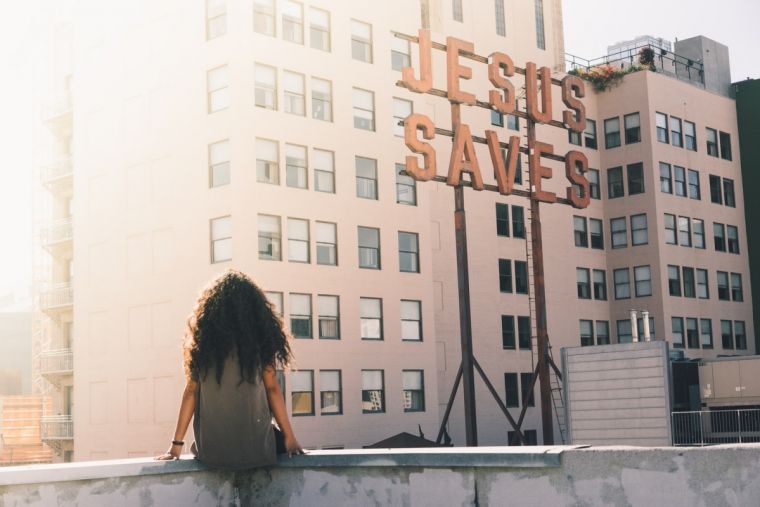
When you realise that there is this structural, systemic and insitutional racism, something that you can't always see but can feel, then that can have an impact. If you are a young black boy or girl, even if someone doesnt use the 'N' word directly at you, you will hit a glass ceiling or a locked door at some point and experience racism. And you will see discrimination in a way where you can't quite work it out, but you know it's there.
For some younger black people now, they might not have experienced some of the overt racism I experienced growing up in the 90s, and that's a good thing. But the question now is: how do we break through to the next level? How do we get into those leadership positions? How do we know that we're not being discriminated against by institutions?
I think that kind of racism is still present and therefore I think, psychologically, it can cause problems, including impacting on your confidence and second-guessing yourself. It can even induce feelings of anxiety because in some way you can feel like you are battling against this wall and you can't quite work out where exactly it comes from but you know it's there.
I want my book to give black people in that situation the language to articulate what they are experiencing and that includes within the Church. The Church should be a place of unity, hope and integration - not just diversity but integration and inclusion. And as Christians, we need to be in a position where we can have these conversations and give black people the tools to explain and express what they're going through without the fear of being called aggressive or of having a chip on their shoulder - which we sometimes get when we bring up these conversations.
CT: Tell me more about your experience of growing up in a white-majority church? Was there any tension there?
Ben: The church I grew up in was white-majority. I think our family was the only black family there and I am now one of the pastors of a church in New Cross London that is 70% white. So, for 40 years I have experienced white-majority church culture and I suppose the tension in that is that, with all the best will in the world, there are these moments when you come up against that wall I was speaking about earlier.
At times, the black people in my churches have just felt 'outside' of church community or have at times felt 'othered' or experienced what's known as 'microaggressions' - a term used for brief and commonplace daily verbal, behavioural, or environmental indignities, whether intentional or unintentional, that communicate hostile, derogatory, or negative prejudicial slights and insults toward any group, particularly culturally marginalized groups - the comments that can be a bit offensive and make us feel uncomfortable or suddenly make us question what that person actually thinks of us.
When 'othering' builds up, you start to ask the question: 'Am I really welcome here?' You might be experiencing microaggressions multiple times throughout the week at work and if you are, then the last place you want to experience that is in your church - the very place where God says in Revelation that there will be every tribe and every tongue worshipping together. Maybe in reality, it's not every tribe and every tongue.
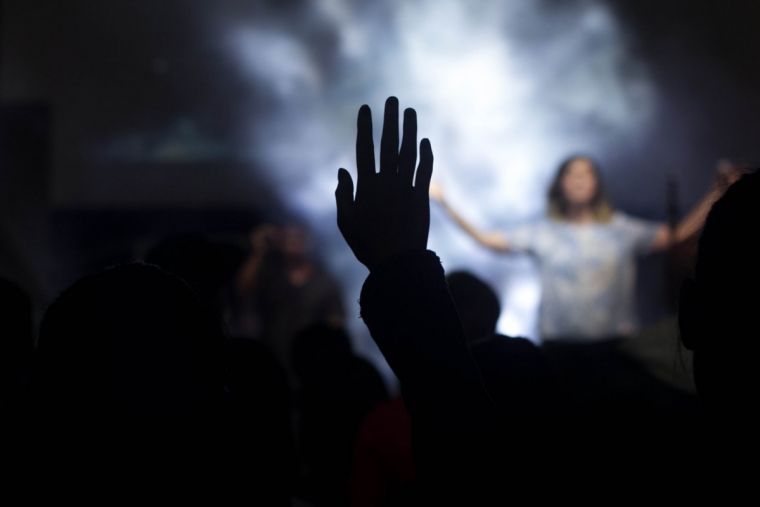
Someone could just say, 'Well, that's your view as a person of colour.' But let's look at the leadership representation and you will see that wall again. Why do we not see people of colour in the worship leadership or the pastor or elder positions?
I'm still not seeing a fair representation of what I look like in the top positions of the Church. That all starts to make you think: 'is this the right place for me?' 'Do they really care?'
And if we look at what pastors are preaching from the pulpit, are they really addressing the things that really directly impact my community and the things that I as, a black person, am worried about?
For example, we know that hate crime has gone up around 70% since the Brexit referendum and that this is more likely to affect people of colour. Well, what does the Bible say about justice and immigration? I want to know how I can contextualise the Gospel to empower the minority and if I'm not hearing those conversations - in addition to the lack of representation in the church leadership and the 'othering' - then I start to think: 'is this the right place for me?' 'Do you, the majority culture, care about what I am dealing with?'
And that's before we even talk about the Church's complicity in the transatlantic slave trade, which for some of my non-Christian friends who are people of colour, is one of the reasons they say they're not going anywhere near a church: 'We're not going there because you guys are still worshipping a white Jesus.'
CT: The white-majority Church, whether it's here in the UK or in the US, has slowly acknowledged it got it wrong on slavery and should have been a voice defending those sold as slaves while in some cases, the Bible was actually being used to justify it. Are apologies enough?
Ben: It makes me sad that there is this very complicated and damaged history in the institution that I am a part of when it comes to slavery. We know that the Church played a massive part in the abolition of slavery but I think sometimes what happens is that we go very quickly to the Wilberforces in the Church and ignore the complicity of the Church in helping the transatlantic slave trade to prosper.
And this connects to evangelism, because if you have a church in a hyperdiverse community, and you don't talk about these issues, then you are potentially creating a barrier to people encountering the good news of Jesus.
Because issues of race and slavery are the types of conversation I will typically have in the barber shop. Politics, sport and religion come up all the time and there are people from all kinds of different faiths in there getting their hair cut.
This kind of thing really does come up. People want to know: when are we going to talk about reparations? An apology is all well and good but there are still institutions that have made lots of money - and continue to make lots of money - off the back of slavery.
When slave owners were compensated for losing their slaves at the abolition of the slave trade, the government needed to borrow around £20m to pay off not the slaves, but their owners! That loan was only paid off in 2015 and from taxpayers' money, which means that all my family members - me, my parents, my grandparents - helped to pay this off with our taxes. In effect, I was screwed over doubly!
These are the things that people don't understand when we talk about the impact of slavery.
Despite the abolition of slave trading by Britain and other countries from 1807 onwards, illegal trading continued for a further 60 years. About a quarter of all Africans who were enslaved between 1500 and 1870 were transported across the Atlantic in the years after 1807.
So it's not just something we can say ended with the abolition just over 200 years ago. And as we've seen with the loan repayments, right up to 2015, we were still being impacted by this even financially.
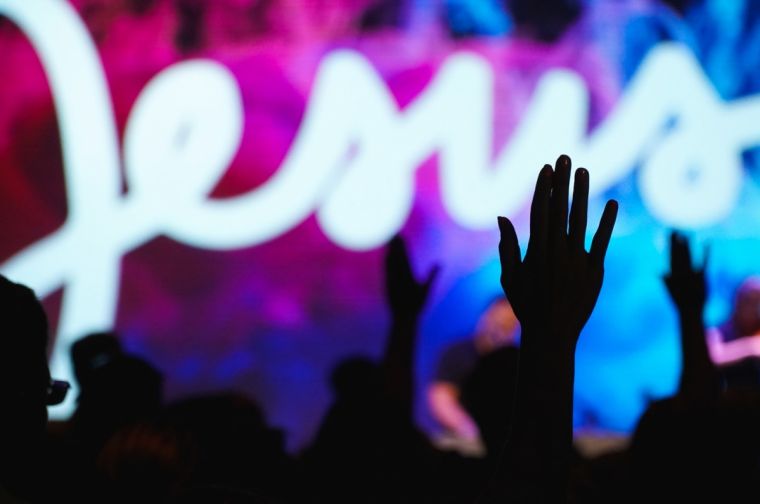
But there's the biblical question as well because a lot of Christians will say something like, 'I don't see colour because Christianity is our main identity.' I laugh when I hear comments like that because I just think it's funny that they don't see colour because God clearly did see colour and He made everybody different! God isn't colour blind!
There's a spectrum, though, from colour blind on one end to colour consciousness on the other and if you go too far either way, you will run into problems. If we are colour blind, we won't be prepared to celebrate the diversity God has made. If we are too colour conscious, then we can ignore Jesus being the main part of our identity. We have to bring these two ends of the spectrum closer together to say that yes, Jesus is our identity and we should celebrate that, but we shouldn't be afraid to celebrate the diversity we have in Christ.
CT: Is there an extent to which we are just different and come from different places and people can't fully understand what they haven't experienced?
Ben: We as Christians should always be wanting to learn more about people and want to be inquisitive. Just because something hasn't happened to you directly doesn't mean it's not happening and I think people of colour need to be emboldened and encouraged to share their story and not feel like they're going to be ostracised for doing that.
And I think the white-majority culture needs to acknowledge that there is a different narrative out there than the one they are used to. The experience of racism is just a fact and saying that it has happened is a valid comment. There are things I will never experience directly as a man that women have, like gender pay inequality, but that doesn't mean I can't engage.
Black people are starting to share their story through writing and that needs to happen because we have different experiences. White people can already share their experience as a middle class white person, a white woman, a white blue collar worker and so on, but when it comes to perceptions of black people, we are either seen as the very middle class Carlton Banks from the Fresh Prince of Bel Air or the radical Malcolm X. I'm neither of these stereotypes. There are many different stories of being black and the experience of racism can be different but that's ok, these stories need to be told and I want to have those conversations.
CT: For some of the Windrush generation of black people who came to the UK, they were allowed to attend the local white-majority church but, for example, weren't allowed to sit in the front pews. Do you think things have improved in the Church now? Do you see areas where the Church is getting things right?
Ben: Things have improved in some ways and things have stagnated in others. Starting with the improvements, I don't think any black person going to any church in the country would feel like they couldn't sit at the front of the church.
My mum showed me the letter of recommendation my grandmother brought with her from her Methodist church in Jamaica to take to the churches here in order to become a member. Some churches just dismissed it and said 'you're not welcome here'. Other churches said 'yes, fine'.
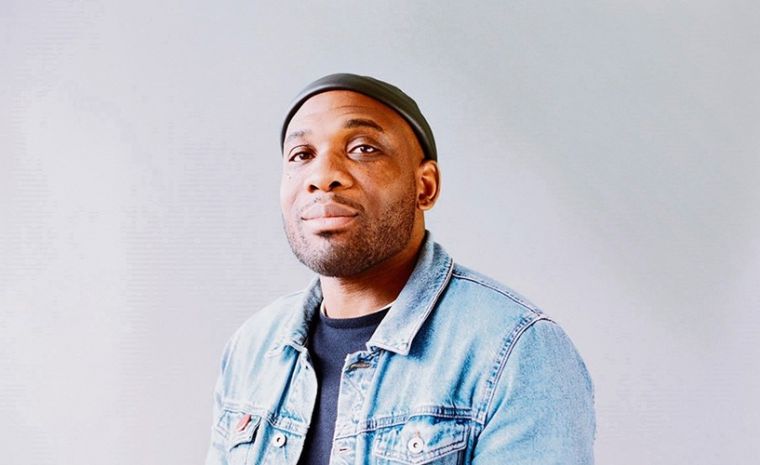
That's one of the reasons why black churches were built in this country, because so many were not being accepted into the white-majority churches. And the Church of England has acknowledged the need to apologise for not being as welcoming to people of colour coming to this country as it should have been.
Has it got better in that way? Definitely, because we can see that people can go anywhere and in theory be made to feel welcome. But, again, going back to what I was saying earlier, if you look at the representation in leadership, it's been slow to change. It was big news when Rose Hudson-Wilkin was announced as the first black female bishop and it's taken this long to happen.
If we look at leadership representation across the denominations I would question how far we have actually come. We can all say diversity, yes. But integration and inclusivity is a lot harder to measure. Are black and white people interacting and engaging in a way we would hope for or do you go to a church and see all the black people sitting together and all the white people sitting together?
The black majority churches are the fastest growing in the UK so there are questions we need to ask around that. Is that because of black representation in leadership or social action issues or what's being preached from the pulpit? Do people feel like they're dealing with racism issues during the week and not getting any support from their church?
One church I know, back in the year 2000, had 300 people - around 40 black and 260 white. Fast forward 20 years and it now has 1,500 people - around 1,000 black and 500 white. But the senior leadership is still all white. So that's not to say that there are not any black people in positions of leadership but they are not in senior leadership.
So, in some areas we have moved forward but there's still a lot to learn and I think we need to have these honest conversations.
There are brilliant examples in the church of Antioch leadership team, with Simeon and Paul and others who were all a different mix of backgrounds and class and race. It was a real representation of the community. So we already have models of diverse leadership in the Bible.
The leadership thing is important because when you see it, then you believe you can do it. The white majority already has plenty of role models and mentors to inspire you to think you can do it.
Across all the denominations, there are questions we need to ask because we're asking the questions elsewhere in society and it feels like the Church is a bit behind on this. We're asking: where are the black football managers or, in industry or commerce, where is the black senior management? And when it comes to gender, we're asking: why are women being paid less than men in the same position?
We're asking all these questions everywhere apart from the Church. It is an institution unlike anywhere else because of the God dynamic and the Bible that already tells us about how we are to make people welcome.
We've got to have real conversations about minority cultures being given a voice and a seat around the table, and that is going to require a shift in power and power structures and that will require some people laying down some of their power to allow it to be shared with others. That is not something people naturally want to do or acknowledge the need for, but this is where the conversation needs to happen.
And there needs to be some repentance; repentance for ignoring these issues. We need the Holy Spirit to help us in these issues and convict us to make a real change and dismantle some of the structures and systems and culture we are used to. Working on the individual level is one thing but to influence systems and structures will need a heart change.











